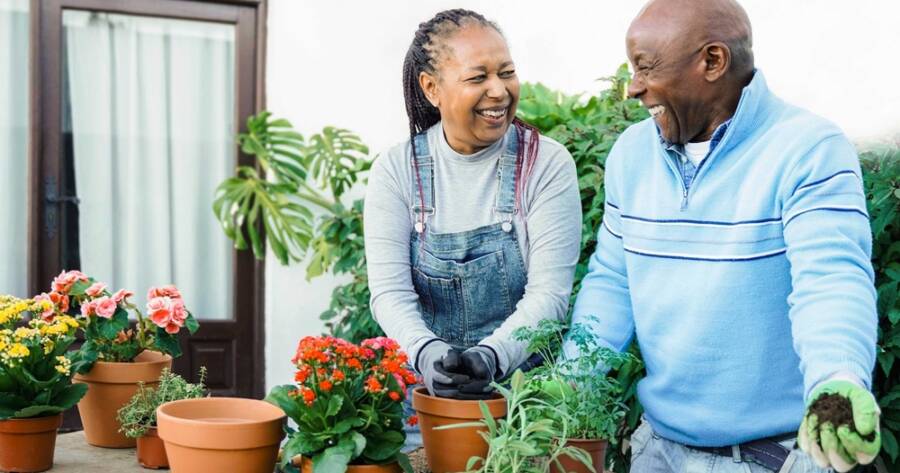Staying engaged through hobbies isn’t just a fun way to pass the time—it’s an important part of healthy aging. Hobbies help seniors stay mentally alert, physically active, and socially connected, all of which contribute to better quality of life. Whether you’re looking for something creative, physical, social, or intellectual, there’s a hobby to match every interest and ability.
Here are some of the best hobbies for older adults that promote joy, stimulation, and well-being.
Gardening: A Peaceful Way to Stay Active
Gardening is a favorite pastime for many seniors—and for good reason. It combines physical activity, mental focus, and a sense of accomplishment. Tending to plants can improve mobility and flexibility, while exposure to fresh air and sunlight boosts mood and vitamin D levels.
Don’t have a backyard? Consider container gardening, raised garden beds, or joining a local community garden. Even a few houseplants can provide a calming, purposeful routine.
Benefits of gardening for seniors include:
-
Light physical activity
-
Stress relief
-
Improved dexterity
-
Fresh herbs or vegetables to enjoy
Plus, there’s nothing quite like watching something grow thanks to your own care and attention.
Creative Arts: Express Yourself Through Hands-On Projects
Creative expression is a powerful tool for staying mentally stimulated and emotionally fulfilled. Activities like painting, knitting, drawing, or crafting offer a way to relax, focus, and explore new ideas.
Many community centers and online platforms offer guided classes tailored for older adults. Whether it’s watercolor painting, scrapbooking, or woodworking, artistic hobbies provide both structure and creative freedom.
Some popular creative hobbies include:
-
Painting or coloring
-
Pottery or sculpting
-
Quilting or sewing
-
Jewelry making or beading
Creating something with your hands builds confidence and can even lead to handmade gifts or items to sell at local craft fairs.
Lifelong Learning: Keep Your Mind Sharp
Learning doesn’t have to stop with age—in fact, staying mentally challenged is essential for cognitive health. Online courses, lectures, and educational apps make it easier than ever to explore new topics from the comfort of home.
Look for classes through platforms like Coursera, Udemy, or local libraries and universities. Many offer free or low-cost options for seniors. You can study anything from history to photography to digital literacy.
Great options for lifelong learning include:
-
Online courses and tutorials
-
Book clubs or reading groups
-
Learning a new language
-
Brain games or puzzles
Engaging your brain in new ways supports memory, focus, and overall mental sharpness.
Social Hobbies: Stay Connected with Others
Loneliness and isolation can be major challenges for older adults, but hobbies that involve social interaction help build community and support emotional well-being. Whether it’s a walking group, card club, or volunteer program, staying socially active leads to stronger connections and a better sense of purpose.
Social hobbies to consider:
-
Joining a local senior center or club
-
Participating in group fitness or dance classes
-
Volunteering with a cause you care about
-
Attending cultural or religious events
Even something as simple as playing board games with neighbors or hosting a potluck can make a big difference in daily life.
Tech-Friendly Activities: Embrace the Digital World
Technology can open new doors for hobbies and connection—especially for seniors who may have limited mobility or transportation. From virtual travel experiences to online trivia nights, there are countless ways to stay engaged using a computer, tablet, or smartphone.
Some fun digital hobbies include:
-
Digital photography and photo editing
-
Virtual museum or zoo tours
-
Video chatting with family and friends
-
Playing word or puzzle games online
-
Streaming music, movies, or educational content
Tech-savvy hobbies also help older adults feel more connected to younger generations and more confident navigating the modern world.
Rediscover Joy Through Hobbies That Inspire You
Hobbies aren’t just about staying busy—they’re about staying fulfilled. For seniors, the right hobbies offer more than entertainment; they support physical health, mental clarity, and emotional resilience. Whether you prefer planting flowers, painting landscapes, learning a new language, or simply connecting with others, there’s a world of possibilities waiting to be explored.
Start with something small and see where it leads—you may just uncover a new passion that keeps you smiling for years to come.

